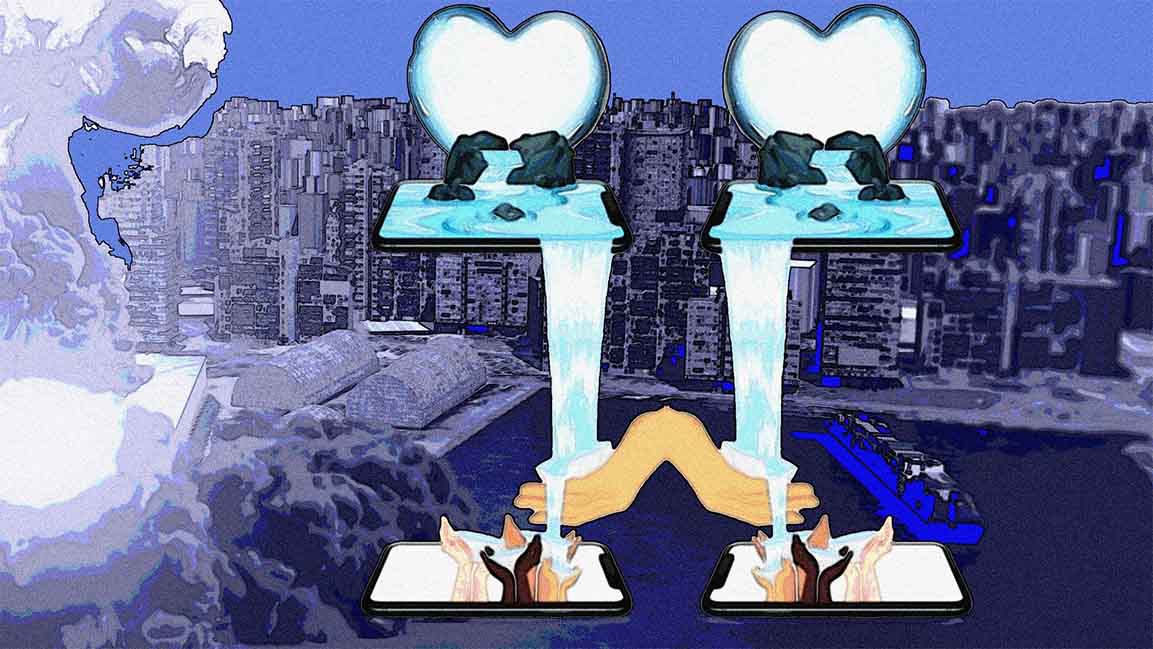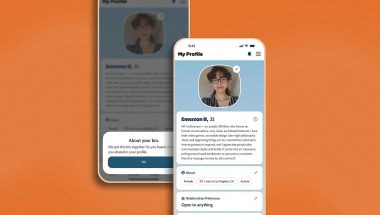- | 9:00 am
These two young social activists could change the way Lebanon rebuilds—here’s how
To safeguard the vital work of civil society groups, Marc Bitar and Rudy Choufani have developed an app to facilitate funding for public services

In recent decades, civil society groups have played a fundamental role in supporting social stability in Lebanon. However, they were put to the most challenging test in the wake of the massive explosion of Beirut Port in 2020 that devastated large swathes of the city, killing hundreds of people and making some 300,000 homeless.
Amid chaotic ambiguity – a lack of statistics and transparency on donations – social organizations mushroomed to contribute to the recovery effort, instead siphoning funds that poured into Lebanon.
Young Lebanese social activists Marc Bitar and Rudy Choufani, who have long volunteered with well-established NGOs, decided to act to protect these NGOs’ reputations after phony groups tarnished them.
“Assisting credible civil society forces whose work has an impact on the society is our aim,” said Bitar, co-creator of Dribblets. This platform brings together NGOs to facilitate funding.
REGROUPING CREDIBLE NGOs
“We have experience with respectable NGOs, and we know how hard they work and how difficult it is for them to reach out to donors to secure donations. So I decided to work on something that could benefit them, and this is how Dribblets, which I later developed with Rudy, was born,” adds Bitar.
“We wanted to create a platform to regroup reliable NGOs. At the same time, we wanted to show their work and impact, so donors would be aware of the projects they support.”
Given the vital role played by civil society groups in a country where public services have been deteriorating due to non-functional governments, 24-year-old Bitar ideated this project five years ago while studying engineering at the Lebanese American University.
He decided to implement the project with the help of Choufani after the Beirut explosion.
LINK BETWEEN DONORS AND ACTORS
“I realized then that if an app had been online and functional during the explosion, funds and donations would have been channeled and managed better. The bad management of funds and scandals that surfaced afterward deterred donors and marred the reputation of all groups, including the good ones,” said Bitar.
The two young men first identified trusted NGOs to inform them about the new concept. “The platform allows them to exhibit themselves better and potential donors to obtain more information about the groups and the projects they want to support. It also enables the two parties to communicate directly, creating a relationship of trust,” Bitar said.
The groups wishing to join the platform, a LinkedIn for civil society actors, must meet specific requirements. They must be registered and certified by the state, operational for at least ten years, and have a proven history of reliable civil work.
Younger organizations can also apply if referred by those who meet the requirements. Once approved, the NGOs can create their profile and links to social media. They can also add their bank accounts to facilitate the transfer of donations.
The app is the secure and reliable link between donors and actors, Choufani said.
“Fake or illegal NGOs would never want to use this app since they have to be transparent and show the impact of their work and where the money has gone. All information about their work is accessible. They would not want to be on our platform if they had something to hide.”
CIVIL GROUPS REPLACED THE STATE
Around 20 civil society groups have joined the platform launched five months ago. The duo also seeks to link the Lebanese NGOs with their French counterparts, who showed interest in future collaboration.
“The civil society groups have somehow replaced the state in many aspects,” Bitar said. “Their work and the causes they support have made a difference in the country for many years, and the least we could do is to give exposure to their work.”
Socio-political activist and university professor Mona Fayyad praised the work of civil society, which she said “is stronger and more effective than the state.”
“It has been providing more than mere support to the people because the state has always lagged and failed to provide the services it is supposed to provide,” said Fayyad.
“However,” she added, “whatever little support these groups are dispensing is making the people passive. They are not protesting against the corrupt rulers who caused the economic crash.”
“With the economy getting worse, soon enough, the NGOs will not be able to provide proper support regardless of the donations they are getting.”
An unprecedented economic crisis has hard hit Lebanon since 2019, plunging half its population under the poverty line. The local currency lost more than 90% of its value, prices are skyrocketing, and banks have imposed harsh restrictions on money withdrawals.
For Fayyad, the role assumed by civil society groups should be shouldered by the state. “It is not their [NGOs] mission to replace the state,” she said. “Civil society groups have an important role but are not a state’s substitute.”







































